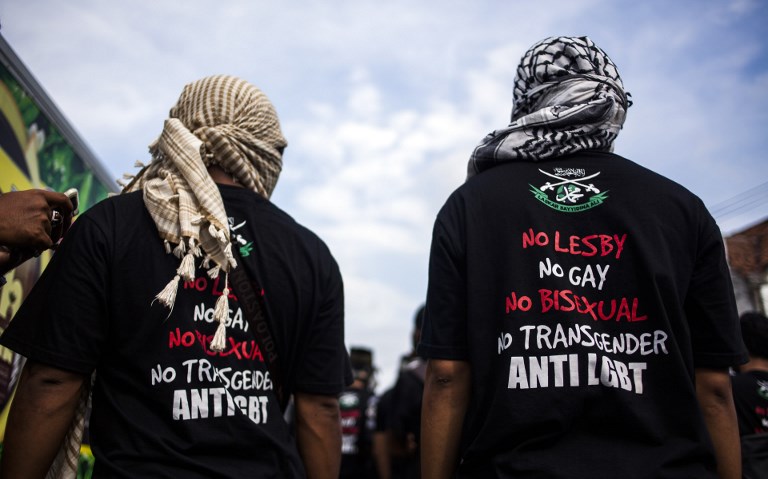State-sanctioned discrimination in Indonesia against the LGBT community and individuals saw a sharp increase towards the end of last year as officials in a number of cities and regions — particularly parts of highly conservative regions in West Sumatra and West Java — publicly denounced the protected minority group, led anti-LGBT activism parades and passed various decrees and regulations targeted at rooting out “deviant sexual behavior”.
The city of Depok, one of Jakarta’s satellite cities, is among those in which top officials are pushing an anti-LGBT agenda. Last year, Depok Mayor Mohammad Idris issued a circular on “Strengthening Family Resilience Against Sexual Deviant Behavior”, which instructs official agencies to investigate LGBT activities. The mayor also asked the general public on Monday to report LGBT behavior due to concerns about “violence against children and an increase in HIV / AIDS sufferers”.
Despite this blatant discrimination against the protected minority group, very few government agencies have spoken out against the rise in anti-LGBT actions. One exception is the National Commission on Human Rights (Komnas HAM), which spoke out against Mayor Mohammad’s and his administration’s actions, saying they had the potential to violate the rights of the city’s citizens.
“For the protection of human rights, a person must not be discriminated against, be intimidated or receive threats of violence because of their sexual orientation,” Komnas HAM Commissioner Beka Ulung Hapsara said when contact by Tirto on Monday.
Beka said that while the state could crack down on cases of sexual deviation involving pedophilia, the Depok City Government was wrong in considering all LGBT behavior to be deviant. Beka said that, insofar as LGBT is presented in the context of sexual orientation, than they are entitled to protection like other citizens.
Beka also noted that Indonesia’s constitution mandates that the government must protect all citizens, regardless of sexual orientation.
Komnas HAM is tasked with upholding human rights as defined in both national legislation and international instruments to which Indonesia is party, many of which define sexual orientation as a protected class in the same category as race, gender and religion.
Many observers suspect that the sharp increase in anti-LGBT rhetoric and action by government officials are an attempt at gaining political points ahead of national elections in April. If so, we can expect to see even more officials taking the same tact as Depok’s mayor — hopefully others will be brave enough to join Komnas HAM in denouncing this kind of dangerous scapegoating and discrimination.




